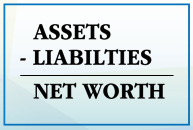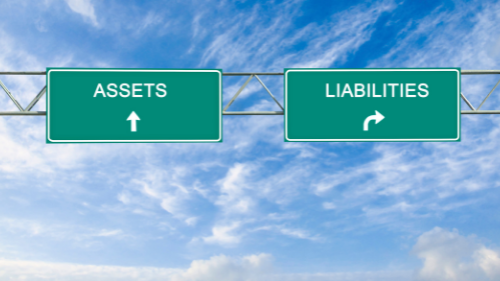What Is An Asset?
An asset is something that has monetary value. Put simply, an asset is anything that puts money in your pocket. Examples of assets are: money in the bank, stocks, bonds, and rental properties.
What is Liability?
A liability is a claim on your asset. Put simply, a liability is anything that takes money out of your pocket. Examples of liabilities are: taxes, credit card debt, mortgage, and auto insurance.
Most people confuse a liability for an asset, and for this reason, they buy more liabilities than they do assets. In fact, the financial woes that many families are experiencing today is a result of their lack of knowledge regarding an asset and a liability. If consumers understand the difference between an asset and a liability, this may cause them to make better choices when it comes to spending. Sadly however, only students who took business in school got some exposure to these concepts.
Many people purchase a new car because they believe it will have far more value than a used one over time. But what they don’t understand is that a car starts losing its value the moment it’s driven from the dealership, and the loss in value is greater for the first 2 years. So not only that a week later, their new car is valued less than its purchased price, after a few years the difference between a 3 year old and a 5 year old car is far less than the difference between a new car and a 2 year old car.
Plus, there’s the matter of the other expenses associated with owning a car, such as insurance, license, gas, and maintenance costs. All these costs clearly take money from your pocket. It stands to reason that a car is a liability and not an asset.
However, a car has the potential to be an asset depending on what it is used for. An Uber driver, for instance, uses his car to earn money as well. So, although there are expenses associated with owning the car, because it provides some cash flow from each trip, for that use, it is considered an asset.
Your primary home is another example of a purchase that can be an asset and a liability. There are many costs involved in owning a home, such as a mortgage, home insurance, property tax, maintenance costs, and appliance replacement. As long as you’re living in your home and paying these expenses, it is a liability to you. Even if the home appreciates in value and you have no mortgage, it is still a liability, because you still have to pay your property taxes, and cover maintenance expenses.
However, your home could also be an asset if you decide to rent a part of it, because the rental income will put money in your pocket. Also, if you were to sell your home and the selling price is greater than your mortgage balance, it would be considered an asset because all the money left over after selling would be in your pocket.
Your assets and liabilities determine your net worth. If your assets are greater than your liabilities, your net worth is positive but if your assets are less than your liabilities, your net worth is negative.

When it comes to your financial health, your focus should be on increasing your net worth. The higher your net worth, the closer you’ll get to financial freedom. You can increase your net worth in 2 ways:
- Increase your assets
- Reduce your liabilities
But while reducing your liabilities will increase your net worth, if your assets are limited, it doesn’t matter how much you reduce your liabilities, your net worth will still be limited. And of course, since we live in a nation where we must pay our taxes:
You make money, they tax you
You spend money, they tax you
You save money, they tax you
You die, they still tax you!
it’s highly impossible to have zero liabilities. So increasing your assets while reducing your liabilities will get you to financial freedom faster. There are various ways to increase your assets such as:
- Investing in stocks and bonds
- Investing in mutual funds and portfolio funds
- Starting a business
- Joining a networking business
- Investing in real estate (active and passive)
- Whole Life insurance
- Writing a book
- Selling on Amazon
- Investing in storage
- Investing in land development
This list is certainly not exhaustive as these are just the different asset classes that my husband and I are in.
These may not resonate with you but be sure to choose whatever asset building strategies that work for you, and keep growing your assets to reach financial independence in the shortest possible time.

